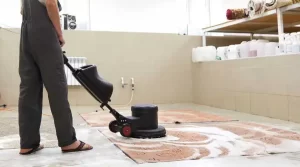Having a filthy office kitchen is a regular issue in most workplaces. It is quite aggravating when some employees neglect to complete their portion of the office cleaning, leaving a mess for everyone else to clean up. When there are unclean dishes, spilled food all over the benches, and gross old tuna cans, things may get really bad.
It’s important to maintain the kitchen clean for a variety of reasons.
- It devalues the workplace and might negatively impact workers’ happiness.
- Your firm will leave a bad impression on customers.
- It could pose risks to one’s health and safety from mishaps like slipping on wet floors or foodborne illnesses.
- A recent Australian study found that dirty offices are bad for employee morale. A filthy workplace, according to three out of four employees, is a sign that their supervisor doesn’t care about their welfare.
Another option that an uncomfortable office kitchen may force employees to consider is having lunch at workstations due to the large quantity of bacteria on workstation office equipment. Therefore, having a clean and well-kept kitchen is in both managers’ and staff’ best interests.
If you’ve been struggling with this, it might be time to try some fresh approaches or consider working with a cleaning company. See below for cleaning tips for offices’ kitchens.
Give It Your All!
The workplace kitchen wouldn’t be so dirty if we all contributed! Be mindful of your behavior in the communal areas of your place of employment, and tidy up any messes you make! A microwave dropped food? Blot it up with a paper towel. The final roll of paper towels has been used up. Get another one from the supply closet so it is prepared for the next individual. It’s possible that small changes might genuinely have a big impact.
Get the Tools You Need
You cannot expect the location to constantly be spotless if the necessary tools are not being provided. Make sure your staff can easily access:
- Towels and paper towels
- Surface vapors
- Soap for dishwashing and brushes
- Trash cans and bin liners
- Recycling containers
- Refrigerators and dishwashers that are the right size
If your management hasn’t provided you with these needs as an employee, ask your office manager or support services to stock the office kitchen.
Additionally, it could be advantageous to provide some small labels so that workers can identify their food with their name and the date before putting it in the refrigerator.
Apply the Basic Principles
There are simply certain people who are less conscientious than others when it comes to maintaining public spaces clean and organized. Maybe it’s time to create a cleaning schedule for the office. This ought to cover the essentials, including cleaning up after oneself in the workstation, doing your own dishes’ washing or rinsing, and not putting expired food in the refrigerator.
Make sure everyone is informed of the regulations. Share them through internal messaging, like a mass email issued to all staff members or the regular staff newsletter. It is essential to include it in manuals or orientations for new staff so that everyone is aware of what needs to be done.
Create some posters or banners to hang on the walls of the kitchen to keep the policy visible and to remind everyone of their responsibilities there.
Establish a Roster
Maybe the guidelines and courteous reminders are ineffectual, and something a little more strict has to be implemented. Only smaller businesses are suitable candidates for creating a roster since they can more readily enforce it. You can assign one person to clean the kitchen every day or once per week, or you can assign a few individuals to do it.
Utilizing a cleaning roster for the office could have several disadvantages. Even though they don’t use the kitchen often, someone may feel uneasy if they have to clean it. Or sometimes someone neglects their cleaning week, making the week that follows even more repulsive.
Delegate
Instead of using a roster system, it might be more efficient to designate a small group of people to monitor the office kitchen’s cleanliness. If your business hires office interns or support staff, it may be essential to include these cleaning duties in their daily tasks. Senior employees or managers wouldn’t be given the task because they would be better off using their high salaries on more crucial projects.
It’s important to create routine tasks for duties that aren’t performed as frequently, such as washing the microwave or cleaning the refrigerator. These devices may become contaminated with mold, bacteria, and stale food when used in public spaces. This might be delegated to your support team for weekly maintenance in order to keep things clean and sanitary for everyone.
Keep in mind that this isn’t a fun chore and that your support staff might not be happy to have to do it, especially if it wasn’t previously on their list of responsibilities. You might have to put up with some displeasure or perhaps consider other benefits to offset it (coffee screaming!).
Utilize Expert Services
It’s simply best to assign work to the professionals sometimes! This added expense may be tough for a small business owner, but it is necessary. Although they are being paid to clean, your staff is instead cleaning the kitchen. Hiring cleaners with the money would be a better use of it.
Commercial cleaners take care of everything that is typically disregarded, which can really enhance an office kitchen. The floors will be vacuumed and mopped, the trash and recycling bins cleaned and sanitized, and the benches and tables disinfected. The cleanliness of your office as a whole can be considerably improved by hiring a regular cleaning service, even just once a week.
Commercial cleaning is a terrific investment for your place of business. As a consequence, your staff will be happy and your common areas will be kept hygienic.







